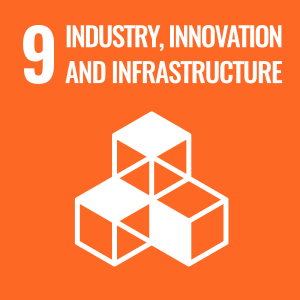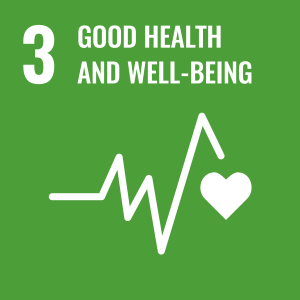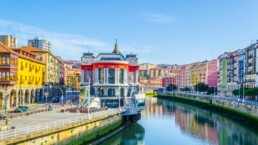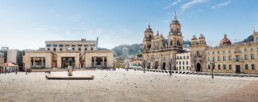Advanced water supply network management
OBJECTIVES
Establish exhaustive control and efficient management of the entire water supply chain, from its incorporation into the network to its provision at the different points of consumption.
DESCRIPTION OF ACTIONS CARRIED OUT
Piloting of an IOT platform as a key structural element for asset monitoring (irrigation elements, public toilet, water tank, storm tank, underground container). The platform provides possibilities for monitoring, remote operation, alert generation and actions derived from the alerts. It is a transversal tool that in the medium term will expand the strategic, tactical and operational possibilities of the services.
Application to the monitoring of water consumption. There are controlled elements (domestic consumption) and others that are not controlled (leaks, sources of consumption, hydrants). Establishment of key indicators, such as pressure, water quality levels or availability index. Monitoring of 22 facilities (tanks and pumping stations) and generation of advanced analyses, reports and alerts.
KEY SUCCESS FACTORS
• Establishment of a horizontal IOT platform for sensor connectivity.
• Incorporation of new data sources.
• Definition of KPIs, monitoring of the same, establishment of thresholds, generation of alerts.
• Massive and advanced data analysis.
MAIN RESULTS ACHIEVED
• Comprehensive knowledge of the behaviour of the supply network.
• Early and accurate detection of leaks (even before water surfaces).
• Inference of unrecorded water consumption
• Dynamic mapping of water abstraction for specific services to influence water quality improvement.
BilbaoAccess
OBJECTIVES
Development and implementation of an automatic vehicle access control system for areas with special traffic conditions in order to regulate and control pedestrian preference zones and thus facilitate coexistence in these areas with the mobility needs of different groups (residents, shopkeepers, hoteliers, etc.).
The first area to be integrated into the new control system was the Old Quarter, and other pedestrian areas of the city will gradually be incorporated.
DESCRIPTION OF ACTIONS CARRIED OUT
• Definition of entry conditions and authorised profiles.
• Identification of the specific needs of Bilbao City Council and the different economic activities affected.
• Development of a Control Centre for the correct management, operation and compliance with access conditions.
• Definition of integrations with municipal and extra-municipal information systems.
• Development of a municipal mobile application so that users can manage their authorisations.
• Installation of 30 Control Points in the Old Town area.
• Development of tests in the 3 municipal environments and coordination with the Municipal Police in order to define the applicable sanctioning process.
KEY SUCCESS FACTORS
• Provision of a Citizen Service Office to provide information, both in person and by telephone, on the conditions of access to the Old Town site.
• Use of different communication strategies (information through municipal channels, information leaflets, etc.) to inform citizens about the implementation of the access control system.
• Clear definition of objectives and scope from the beginning of the project.
• Involvement of the different municipal agents: BilbaoTIK, Public Safety and Economy and Finance.
MAIN RESULTS ACHIEVED
• Promotion of sustainable mobility.
• Reducing the level of vehicles circulating in the Old Town, reducing greenhouse gases and the noise generated by them.
• The reduction in traffic has contributed to an increased sense of security among the elderly and increased local economic activity.
• The automation of registration processes has made it possible to speed up procedures for citizens with mobility needs.
• The automation of control processes has reduced fraud generated by unauthorised access to priority areas.
Bogotá Smart Territory
The Bogotá Smart Territory Policy establishes an implementation horizon from 2023 to 2032, promoting sustainable solutions based on data.
OBJECTIVES
Consolidate Bogotá as a Smart Territory by promoting the use and exploitation of data, technology and innovation by the actors and sectors of the territory, to solve problems and generate opportunities that improve people's quality of life.
DESCRIPTION OF ACTIONS CARRIED OUT
The Bogotá Territorio Inteligente 2023-2032 Public Policy is an initiative led by the High Councillor for ICTs of the General Secretariat of the Office of the Mayor of Bogotá. Its formulation process began in 2021 and went through different phases: preparatory, public agenda and policy formulation. As a result of this process, the final version of the action plan of the Bogotá Smart Territory Public Policy was generated. This action plan includes 7 specific objectives, 7 results and 36 products that will be the responsibility of 14 district entities of the Mayor's Office of Bogotá. The policy was approved on 31 May 2023 and is valid for 10 years.
KEY SUCCESS FACTORS
The Bogotá Smart Territory Policy establishes an implementation horizon from 2023 to 2032, promoting sustainable solutions based on data, technology, and innovation, and seeks an intersectoral intervention for the development of a smart territory in Bogotá.
MAIN RESULTS ACHIEVED
During the process of formulating the Bogotá Smart Territory Policy, the insufficient conditions were identified to develop a collective intelligence based on data, technology and innovation that efficiently responds to the city's problems. Sixty joint construction spaces were held with the participation of more than 24,000 people from different sectors, where the problematic situation was characterised, and strategic factors were defined using design thinking methodologies. Subsequently, the action plan was drawn up in 22 virtual roundtables with public servants and feedback was received from the entities, resulting in the approval of the Bogotá Smart Territory Public Policy on 31 May 2023, with 7 objectives, 7 results and 36 products in charge of 14 district entities for a 10-year period.

Kilometer 0 Program
The Program aims to strengthen both local production and consumption and the link of products with Tandil's values and identity.
OBJECTIVES
Strengthen both local production and consumption and the link of products with the values and identity of Tandil. A type of local consumption and production is encouraged and made available to citizens, which not only means caring for the environment, but also increases the general quality of life of the population by providing access to quality products.
DESCRIPTION OF ACTIONS CARRIED OUT
The program is committed to a circular economy and has several lines of action. In the first place, there are a series of agro-ecological vegetable gardens distributed in different parts of the city for self-consumption and for the commercialization of their surplus. At the same time, the Municipality has had for several years a Community Food Processing Room for those entrepreneurs who produce and do not have a physical space that meets the mandatory bromatological conditions. It is currently made up of 25 enterprises and a Work Cooperative, distributed in 3 processing rooms (flour, mixed and cooperatives). This room is located inside the Municipal Market, which is a space for the exhibition and commercialization of products it works as a point of sale of the products produced in the orchards and in the processing rooms.
KEY SUCCESS FACTORS
The involvement of the various food sectors and civil society in each of the proposals. On the one hand, the production in the agro-ecological vegetable gardens is promoted by several families and neighbourhoods of the city, as well as the productive enterprises that are elaborated in the Community Room. On the other hand, for the realization of the different events and fairs we work jointly with the productive sectors (Brewers Association of Tandil, Ice Cream Shops, rural producers, stores, the TACC-free cluster, the group of cutlers, the Italian Consulate, etc.).
MAIN RESULTS ACHIEVED
Defend the traditions, the revaluation of artisanal productions, small scale, local development, self-sustainability of the community, tourism, and healthy habits, together with the consumption of fresh products, with better flavours, aromas and colours. In addition, access to quality and local products is made available to the population, both through points of sale and at events and festivals where various companies and entrepreneurs are present.

Energy Communities
In April 2023, a face-to-face and remote Community Transformation Office (CTO) was established.
OBJECTIVE
Constitution and consolidation of Energy Communities (EC) in Rivas Vaciamadrid.
DESCRIPTION OF ACTIONS CARRIED OUT
In April 2023, a Community Transformation Office (CTO) was established to provide on-site and remote assistance. In addition, face-to-face training courses are offered for those interested in setting up and operating an Energy Community (EC). These courses are complemented by informative workshops that present replicable cases of ECs. For those who prefer an online modality, a complete training package has been developed on the incorporation and start-up of an EC. Workshops are also carried out with the aim of energizing movements of neighbors and/or citizens interested in creating an Energy Community, including those without previous experience. In addition, specific workshops are organized focused on empowering and strengthening communities already constituted or in the process of being created.
In this sense, the OTC provides technical, economic, administrative, legal and social advice, in addition to offering consulting services in these areas. Finally, cross-cutting resources in the form of internal meetings, reports, materials and a website are provided to support and strengthen the work of the Energy Communities.
KEY SUCCESS FACTORS
• Complete alignment of the figure of the EC with the planning of the city in its goal of being energy neutral.
• Complementary experience with other programs and related experiences (Energy Transition Office).
• Interest shown by the citizens of Rivas in EC.
MAIN RESULTS ACHIEVED
• Community Transformation Office of Rivas, implemented.
• First courses and workshops with full capacity.

Greener Montevideo
Integral environmental plan to transform and enhance the city through a set of innovative actions aimed at building a new environmental reality.
OBJECTIVES
This is a strategy that bets on a cultural change, through the responsible use of resources, the intelligent organisation of services, the social inclusion of inhabitants, the generation of opportunities and the care for diversity. It is a comprehensive environmental plan to transform and enhance the city where through a set of innovative actions it seeks to build a new environmental reality. This plan proposes appropriate solutions for each situation, promoting collective experiences of inclusion and participation with the citizens. For Montevideo to become a cleaner, more efficient, sustainable, and egalitarian city, the commitment of everyone is essential.
DESCRIPTION OF ACTIONS CARRIED OUT
Firstly, tasks have been carried out to clean up and recover watercourses and spaces contaminated by rubbish (the Liberated Areas Programme). In addition, a portal has been set up to receive complaints when rubbish is outside the containers (by sending a photo and the location of the incident via WhatsApp). Similarly, within the framework of the labour reconversion programme for urban solid waste sorters, the replacement of animals with motorbike carts was successfully implemented. Likewise, eco-centres have been established, which have not only been built in strategic locations in the city, but have also implemented the modality of itinerant eco-centres, which move around different parts of the Uruguayan capital.
KEY SUCCESS FACTORS
The conviction on the part of the authorities and the involvement of the citizens of working together and with the strong participation of neighbours in the different actions.
MAIN RESULTS ACHIEVED
This initiative not only focused on promoting animal welfare and care by eliminating the task of dragging a cart, but also aimed to promote the insertion of people into the formal labour market.

Laguna de Rocha Reserve
This practice is a remarkable experience in land management, increasing local resilience and preserving the environment in contexts of urbanisation and environmental fragility.
OBJECTIVES
Improve the quality of life of the population, the preservation of the environment and biodiversity, especially wetlands, strengthening resilience.
DESCRIPTION OF ACTIONS CARRIED OUT
The Laguna de Rocha Provincial, Natural, Integral and Mixed Reserve is in the municipality of Esteban Echeverria. It covers an extensive area of wetlands and marshes adjacent to an urban area. It is an important reserve due to its location in the southwest of the second cordon of the metropolitan area of Buenos Aires, Argentina. In addition to its fauna, flora, landscape, and environment in general, it also stands out for its cultural and historical heritage and the environmental services it provides to a degraded region with strong urban pressure.
KEY SUCCESS FACTORS
Key success factors include the participatory strategy built through an inclusive process articulating with national (ACUMAR, Cabinet Office, INA) and provincial actors (Provincial Government, Water Authority), National Ombudsman's Office, Federal Court, environmental NGOs, OSB, Municipality, and the development of normative tools and collegiate planning and decision-making spaces.
MAIN RESULTS ACHIEVED
The main results obtained include the design of participatory and articulated public policies between local actors, Municipality, NGOs, National Government, Provincial Government, neighbours, and regional governmental organisations; the implementation of communication methodologies and validation of complex public policies in the Municipal territory, and the increase of urban resilience and protection against floods, which are recurrent in the context of climate change in the region.

Solar Communities I
Solar Communities makes solar modules available to private users for the purchase of solar modules.
OBJECTIVES
Promote the transition to renewable energies by the community of Tandil. Solar Communities makes the purchase of solar modules available to private users. With their investment, the kW/h of energy generated per month is subsequently credited to each user's bill and, if there is a surplus, the surplus is fed into the city's general power grid.
DESCRIPTION OF ACTIONS CARRIED OUT
With the participation of investments from private users, the initiative acquires an innovative character as it is one of the first of its kind in the country, since it enables access by citizens who are committed to the energy transition, but for different reasons are unable to install solar panels in their homes. The modules of this solar park were purchased by users interested in renewable energies at a value of U$S 1,000 each at the official exchange rate. With this contribution, investors will have from June 1, 2021, and for 10 years 190 kW/h per month, credited to their energy bill, at the price set each month by the Wholesale Electricity Market Administration Company (CAMMESA).
KEY SUCCESS FACTORS
The vision and work of the “Usina Popular y Municipal de Tandil S.E.M.”, which was created as a mixed (public-private) entity and oversees the distribution of electric energy to the entire Tandil district. Having achieved a high percentage in its distribution, the Usina began several years ago to work on the energetic and ecological transition using renewable energies, even building solar parks for other localities of the Province of Buenos Aires.
MAIN RESULTS ACHIEVED
Solar Communities is an associative project promoted by the Municipality of Tandil together with universities, in addition to the participation of citizens as users and private investors. This initiative, which arises from a public-private partnership between multiple actors, involved the construction of a new resilient and affordable infrastructure, contributes to increase the percentage of renewable energy in the city, encourages the efficient use of resources and promotes mechanisms to adapt to the effects of climate change, being responsible with the environment by using renewable energy.

50/50 Project
The incentive consists of 50% of the annual economic savings achieved through the change of habits being granted to the group or groups that have carried out the process.
OBJECTIVES
The 50/50 project is based on generating an economic incentive for energy savings through a change of habits in centres supported by public funds and used by a group of people who normally do not have access to a budget. The incentive consists of 50% of the annual economic savings achieved through the change of habits being granted to the group or groups that have carried out the process.
DESCRIPTION OF ACTIONS CARRIED OUT
Among the actions carried out, it is worth mentioning the training workshops on energy saving and efficiency for groups of the educational community such as the Parents' Association, the cleaning team, the lunch team, the students, or the teaching staff. Likewise, training has been provided to the different municipal technicians and local educational centres in the methodology of the 50/50 projects. In addition, advisory sessions have been given for the preparation of the different projects designed under the 50/50 approach, operational monitoring of the actions carried out in the schools and monitoring with the municipal technicians. Likewise, advice has been given on the administrative procedures and formalities for the implementation and management of the projects.
KEY SUCCESS FACTORS
The participation of the students involved in the project's objective.
MAIN RESULTS ACHIEVED
Substantial and continuous savings in the consumption of gas, water, and electricity within the participating centres. During the 2022-2023 school year alone, the public schools in Rivas saved more than 69,000€, the equivalent of 223.66 tons of CO2. Most of the combined savings are attributed to gas consumption, where the eleven schools participating in the initiative managed to save 55,522€, representing 79.25% of the total savings.











